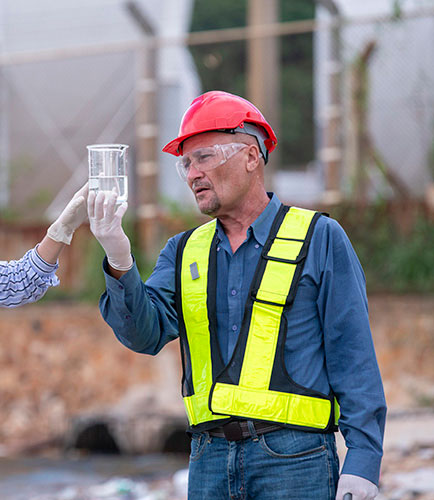Boosting performance under high load
An overloaded municipal treatment works improved effluent quality, reduced solids production and cut operating costs without infrastructure changes.
- UK
- Municipal
- Capacity, Carbon
Challenge
The plant was receiving organic and solids loads well above its design capacity, with poor settleability and limited oxygen transfer.
Solution
ABS worked with the utility to run an eight-month full-scale demonstration, targeting better effluent quality and operational efficiency.
Outcome
Effluent quality improved, solids production dropped, and the site was able to handle more load without breaching consent.
57%
reduction in BOD
40%
reduction in solids
12%
improvement in
settleability
Learn more about ABS Field Services
On-site support from our experts to help fine-tune processes, troubleshoot issues, and implement improvements with minimal disruption.
Details
Improving effluent quality with an overloaded asset

“With ABS, we are working to meet our 2030 Net Zero Carbon targets“
Barry Scott
Plant Manager
Performance and Results
Benefits to the utility